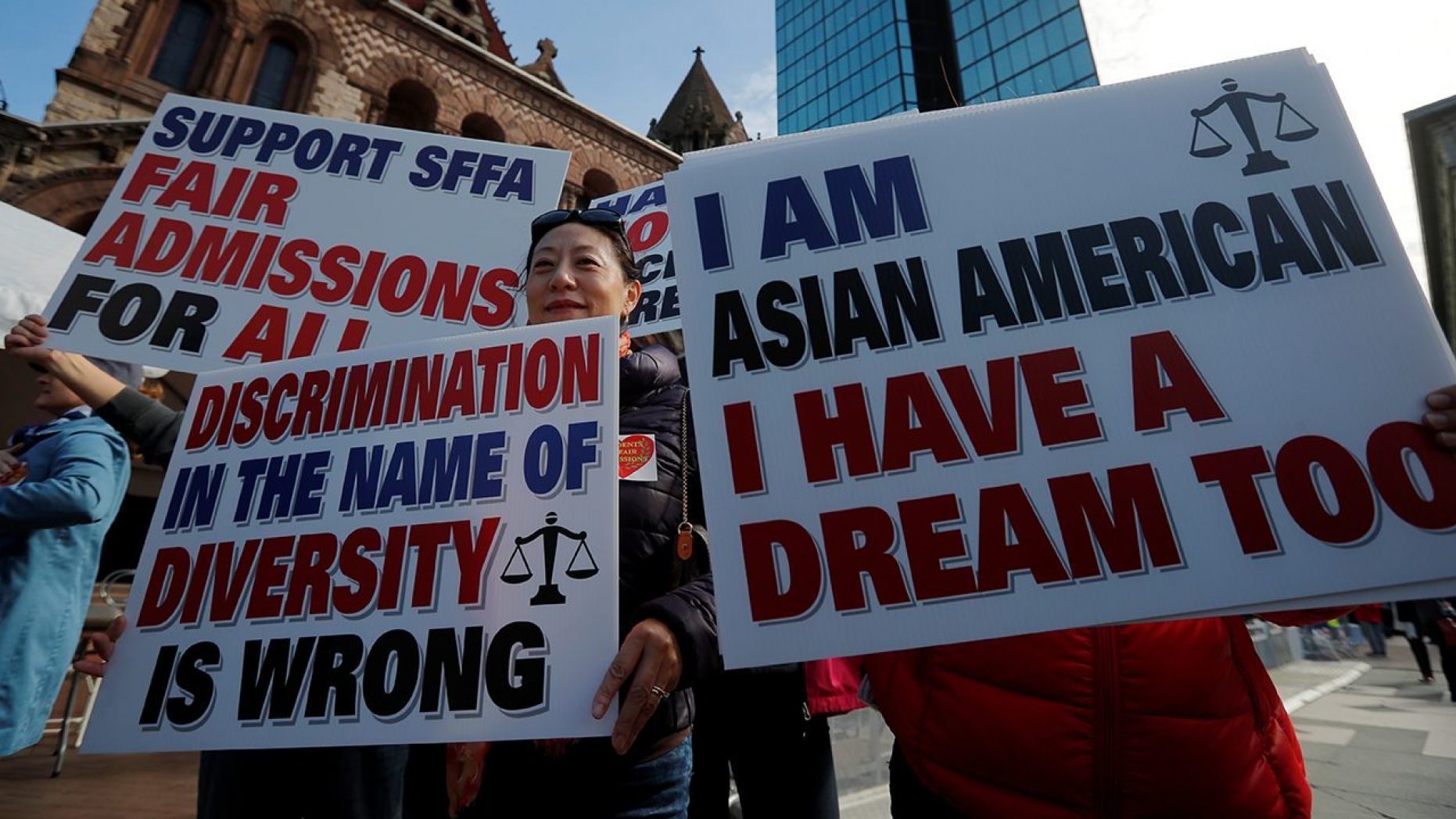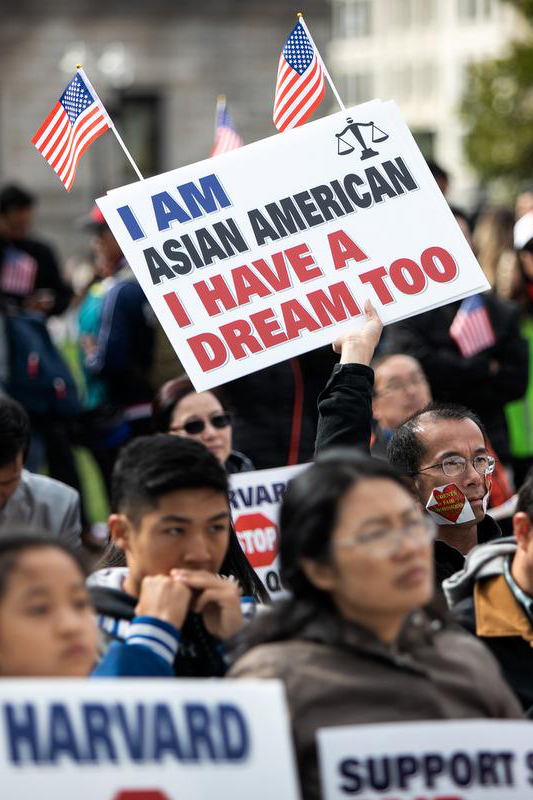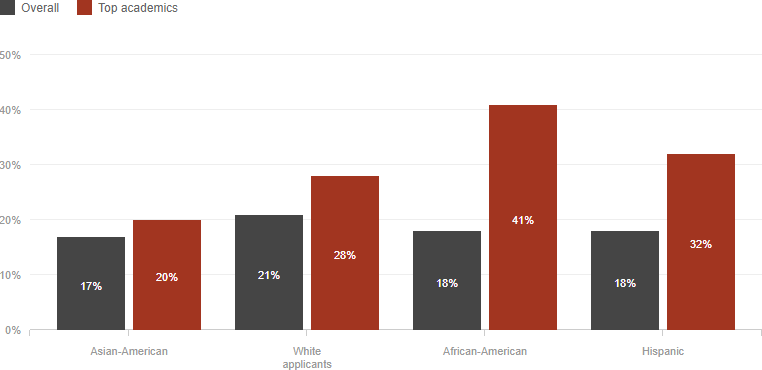Racism may be hard to define sometimes. For example, if I dislike a particular race, am I racist? Most people will probably say yes. But then what about if I like a particular race? Is that racist also? That may be harder to get a consensus on. Personally, I think it is all about how a person is treated or judged. Basically, if a person is treated or judged differently solely due to their race, that's racism. Period. No if's, and's, or but's.
It used to be that you can see and hear examples of racism everywhere. Not only on the street, but on major media outlets like movies and television. But with the explosion of social media platforms, where any act of racism is almost immediately publicized and scrutinized upon, society is getting more and more politically correct in terms of race. It seems like an almost weekly occurrence where some celebrity is apologizing for racially insensitive remarks, even if those remarks were made years ago.
Yet with all these changes, there is still a form of racism that is openly exercised, affecting thousands of U.S. citizens every year. And it is all LEGAL!
In 2014, a group called the Students for Fair Admissions (SFFA) filed a lawsuit against Harvard University charging that they discriminate against Asian Americans in their admissions process. The plaintiff argue that Asia American students have the lowest admission rates at the school, despite having the best academic records. But on the other side, Harvard argues that race is just one of many factors considered in admissions, and not considering the race of the applicant would threaten the school's diversity.
At the heart of the matter is the issue of affirmative action. Basically, affirmative action is a set of government laws and policies designed to give minorities special consideration for access to education and employment to ensure diversity. So in essence, these rules actually mandate universities to use race as a deciding factor in deciding on admissions. But in the case of this lawsuit, instead of helping more Asians get accepted in Harvard, the SFFA alleges the admissions department to be purposely excluding Asian Americans in favor of other racial groups.
On the day before the trial started, there was a rally in Boston where thousands of protesters spoke out against Harvard's practices. Interestingly enough, there was also a rally on the same day at Cambridge where those who were against the lawsuit also gathered. As one can imagine, given the proximity of the two sites, there were some tense moments that day as opposing view points collided during face to face arguments.
During the trial itself, the school's policy of requiring a higher SAT score for Asian Americans to receive a recruitment letter was brought to light. However, the dean of admissions argued that that pertains to recruitment, which is separate from admission. The plaintiff also argued that Asian American applicants consistently received lower "personality" scores compared to other races, which is one of the primary reasons those applicants were rejected. But the school claimed that that was not true if you look at a broader data set. Both sides presented numerous statistics to argue their case.
Percentage Of Harvard Applicants Who Received High Personal Ratings, According To SFFA
The trial for this case concluded last month. And although there is no deadline for U.S. District Court Judge Allison Burroughs to report her findings, it is expected that she will release her opinion in early 2019. Both sides say they plan to appeal, which means the fate of affirmative action policies could end up in the Supreme Court. Incidentally, if this occurs, this would not be the first time this issue is considered by the Supreme Court. The validity of affirmative action has bounced in and out of numerous courts over the last few decades.
Now, I understand the intention behind affirmative action. But objectively, how is any of this fair? How is this not blatant racism? Remember, every time you decide to give a student a spot due to his race, you are also taking away a spot from a student of a different race. In other words, you are INTENTIONALLY deciding to include or exclude individuals based on their race. If that's acceptable, then why not go back to the time when blacks were forced to sit in the back of the bus? How is telling someone "Sorry. You are black, so you can't be in the front of the bus." any different from telling someone "Sorry. You are Asian, so you can't come to this school."

Any admissions process to any educational institution should be race independent. Grades as a criteria? Sure. Extra curricular activities? Absolutely. Being a good member of your community? Of course. As long as you work hard, any student (or person for that matter) can improve those facets and become a better person. But why should race ever be a factor? Schools want intelligent, hard-working, well-rounded students, right? Who cares what color those students are? If the color of a student's skin should also be a criteria, how is that anything but outright racism? Being judged based on the color of your skin? THAT'S RACISM. Whatever happened to "All men are created equal"?
Diversity is all well and good. But if diversity has to be forced by treating people of a particular race unfairly (in other words, RACISM), how is that all well and good? Does this mean racism should be openly accepted as long as it is labeled as diversity? By that logic, there should be no places like Chinatown, Little Italy, Spanish Harlem, or heck, even the midwest, because those places have a high concentration of a particular race. Therefore, officials should start forcibly relocating those people to even out the "diversity" in those areas. Does that make any sense? No? Well, how is that any different from purposely kicking Asian American students out of their rightful spots solely due to their race?
The ability for an educational institute to use race as a criteria for admissions is racist and down right wrong. What's worse, to know that such policies are used to deliberately exclude Asian Americans from being accepted in favor of other races such as Caucasians, Hispanics, and African Americans is egregious. Hopefully, the current lawsuit against Harvard will spark some change, and there would be an end to such LEGAL RACISM.



